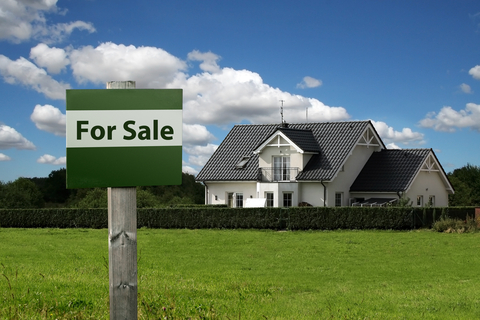French properties: a year to benefit from the tax cuts
From now on you must wait at least 22 years and no more than 30 to be exempt from capital gains tax in France on a secondary residence or a rental property
People selling second homes or rental properties in France will pay less tax from the beginning of September. They are likely to make very big savings.
It’s good news, and such news doesn’t come around very often in tax matters. From 1st September, people selling a secondary residence or an apartment they bought to rent will pay less tax.
As French President François Hollande announced last June, the government has decided to introduce concessions in an attempt to restart the property market. From now on you must wait 22 years and no longer than 30 years to be exempt from capital gains taxes (this measure does not affect principal residences since they are already exempt from capital gains tax).
But most importantly, vendors will enjoy preferential taxation for 1 year; they will receive a 25% abatement on their capital gains. This is not all. According to the sums of Cheuvreux Notaires, the vendor of a house bought 10 years ago who makes a €300,000 yield with capital gains of €60,000 will now pay around €12,000 in tax instead of more than €18,000 before 1st of September.
“It’s a win-win situation. And it’s on the highest capital gains, those higher than €50,000, that the impact of this reform is biggest” notes François Bonte, a lawyer at Michelez. These sums speak for themselves; the happy owner of a second home on the Côte d’Azur kept for 20 years and sold for €2 million with capital gains of €1.2 million will see his tax drop from €311,400 to €123,874.
The vendor of a €250,000 studio apartment in Paris will also benefit; in August, they would have paid more than €36,000 in tax whereas this would now be €23,748 (assuming a capital gain of €110,000 and a 10 year ownership period).
In the face of vendors, French public authorities have dangled the carrot instead of the stick this time. They are opening a 1 year window to vendors to ease the market while simultaneously increasing local authorities’ revenues. This is an attractive window; in a year’s time, the tax office will be less generous.
Not everyone will profit
This measure will be included in the 2014 Finance Law to be presented at the end of the month. However, to avoid freezing the real estate market in the waiting period before the measure is officially implemented, it will also apply to transactions made from 1st September 2013. French public authorities have, however, supervised the measure and not everyone will be able to take advantage of them. Owners of land still to be built on are not affected by this change in taxation. According to the plan, it is impossible to enjoy the 1 year 25% abatement upon sale to a member of the vendor’s family or from the transfer of real estate securities.
Will vendors actually take advantage of these new tax arrangements? This is one of the questions to be answered over the next few months, particularly by the second homes market which is currently frozen in many regions. Owners who decide to reduce their prices and thus to allow the buyers to partly profit from their “good fiscal fortune” could create a win-win situation.


